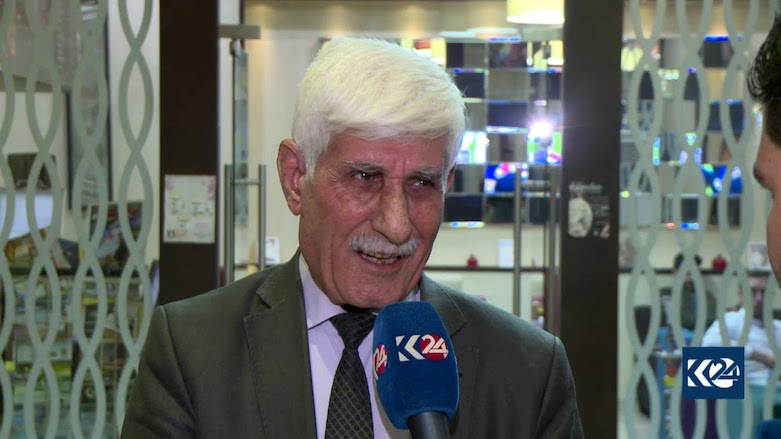Syrian Kurdish parties continue to call for unity

ERBIL (Kurdistan 24) – Two major rival factions among Syrian Kurdish parties have continued meetings since early November to discuss the need for unity after Turkey’s attack on northern Syria.
Mustafa Cuma, a member of the Kurdistan Democratic Party – Syria (KDP-S), told Kurdistan 24 in Erbil that although the Kurdish National Council (KNC) and the Syrian Democratic Forces (SDF) have major disagreements, unity would “delight” the Syrian Kurds.
“If political unity is recognized between the KNC and the SDF or the Autonomous Administration, that will delight our people, and will remove many disagreements and obstacles,” he said.
“Since political unity will gain international support, I believe the threats against our people will be relieved,” Cuma stated, “and Turkey will no longer be able to use the PKK [Kurdistan Workers’ Party] as an excuse” to attack northern Syria.
Turkey launched its assault on Oct. 9 on several areas along the sprawling Syrian – Turkish border against Syrian Kurdish forces.
Ankara sees the leading component of the SDF, known as the Kurdish People’s Protection Units (YPG), as an offshoot of the PKK, a group that has waged a decades-long insurgency against Turkey for expanded Kurdish rights. The YPG and SDF have denied links to the PKK.
Meanwhile, a member of the Democratic Union Party’s (PYD) representative office in the Kurdistan Region, viewed the recent meetings between the Syrian Kurdish parties positively and emphasized that the PYD supports the initiative to unify the intra-Kurdish society in Syrian Kurdistan (Rojava).
“It is time for Kurds to unite, especially the political movements; it is a very critical era, and regional balances have changed,” Cîhad Hesen, a member of the PYD’s Relations in the Kurdistan Region, told Kurdistan 24. “We, as political parties, must build new balances based on achievements in Rojava.”
“The Autonomous Administration is leading the initiative and says they will conduct all that is needed,” he added. “The PYD is a part of the Autonomous Administration, and it has a positive opinion on the subject.”
In an interview with Kurdistan 24 in November, SDF Commander-in-Chief General Mazloum Abdi called on Kurdistan Democratic Party (KDP) President Masoud Barzani to play an active role in bringing Kurdish political parties in Syria together.
Tensions between the KNC and PYD have increased since the outbreak of the Syrian civil war in 2011, with the latter playing a significant role in the establishment of the self-administration that has ruled northeastern Syria.
The dominant Syrian Kurdish factions, the PYD and KDP-backed KNC, have not successfully cooperated because agreements they reached in Duhok and Erbil between 2012 and 2014 were never effectively implemented.
However, since 2017, relations have generally improved between the Syrian Kurds after ties between Ankara and Erbil deteriorated following the Kurdistan Region’s September 2017 independence referendum.
Turkey opposed the vote despite enjoying active economic and political relations with Erbil since 2008.
After the referendum, PYD co-head Shahoz Hassan briefly met Barzani during a funeral in October 2017 for the popular Kurdish figure and former Iraqi president, Jalal Talabani.
Moreover, when Turkey attacked the Kurdish-majority Syrian city of Afrin in January 2018, a delegation from the Kurdistan Region’s Parliament traveled there in February.
Shortly afterward, Hassan visited Erbil in March 2018 to discuss the situation in Afrin with Kurdish officials.
Despite all the calls for Kurdish unity in Syria, no concrete agreements have been reached on the ground.
Editing by Karzan Sulaivany
